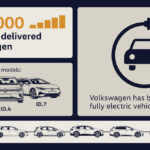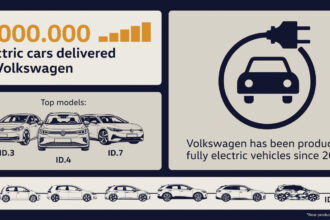Automakers Adjust Production Plans: Increased Focus on Gas-Powered Vehicles, Scaling Back on Electric Vehicles
In a recent development, several major automakers have reportedly revised their production strategies, pivoting towards manufacturing more gas-powered cars and trucks while slowing down the rollout of electric vehicles (EVs). This shift marks a significant departure from previous plans that heavily favored the development and expansion of electric vehicle fleets.
The changing strategy can be attributed to a variety of factors. Market demand, profitability concerns, and global supply chain challenges are likely influential in this decision. Gas-powered vehicles still represent a substantial portion of global sales, offering higher immediate profit margins compared to their electric counterparts. Additionally, the persistent issues with the supply chain, particularly concerning the availability of critical components like semiconductors and battery materials, have posed significant challenges to the production of EVs.
This pivot might have broad implications for the automotive industry’s contribution to global environmental goals, specifically the reduction of carbon emissions. Less emphasis on electric vehicles could potentially slow the progress toward international climate objectives. This possibility has raised concerns among environmentalists and stakeholders advocating for a transition to greener transportation options.
- Advertisement -
While the automotive industry’s sudden shift reflects current economic realities and market dynamics, it also emphasizes the complexities and challenges of transitioning from traditional internal combustion engine vehicles to electric ones. The industry’s ability to adapt to these challenges will likely shape its future trajectory, impacting environmental strategies and market offerings based on consumer demand and technological advancements.
In sum, the recent moves by automakers to prioritize gas-powered vehicles over EVs underscore a calculated adaptation to a multitude of pressures facing the industry today. The long-term impact of these changes will be crucial to monitoring as they will play a significant role in shaping both the global automotive market and the broader environmental landscape.
Words by: Craig Clowes
Credits
news.google.com







